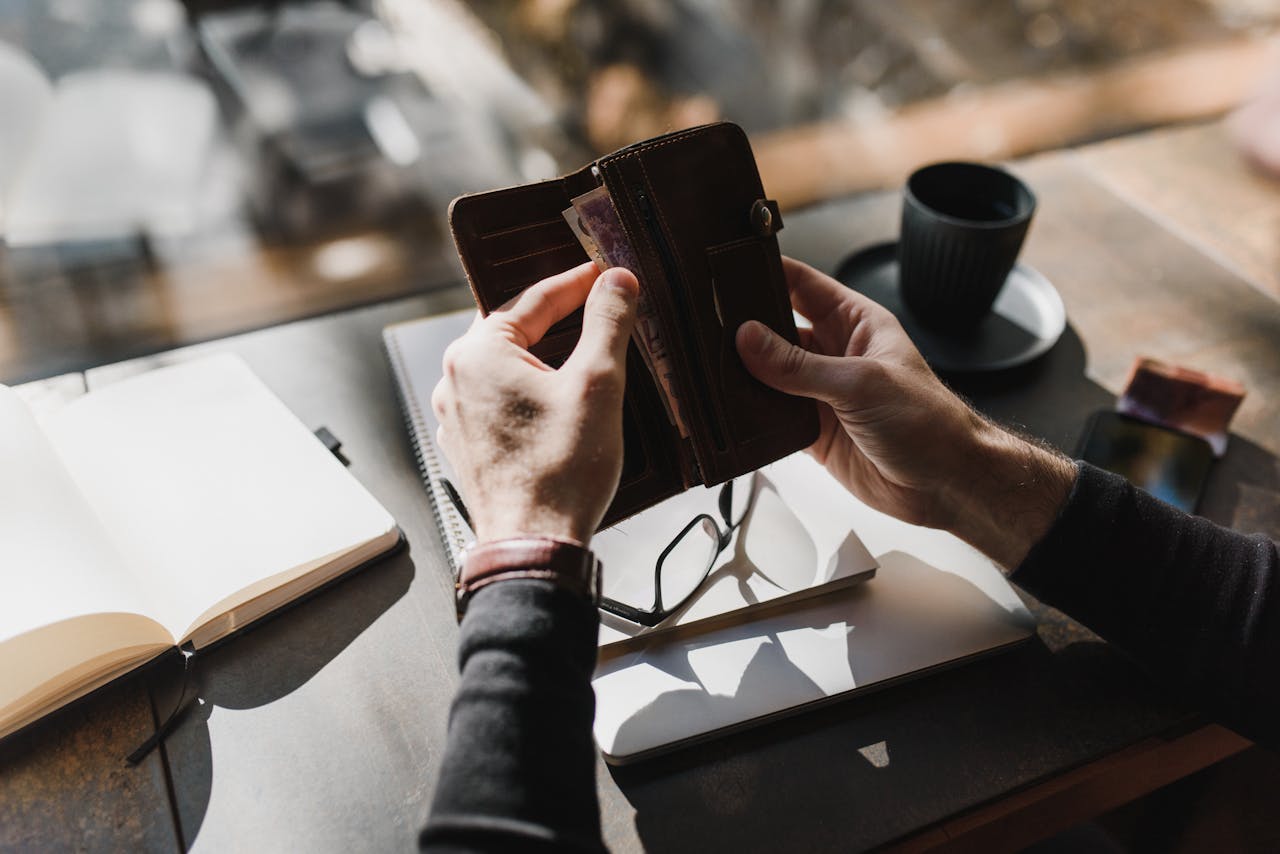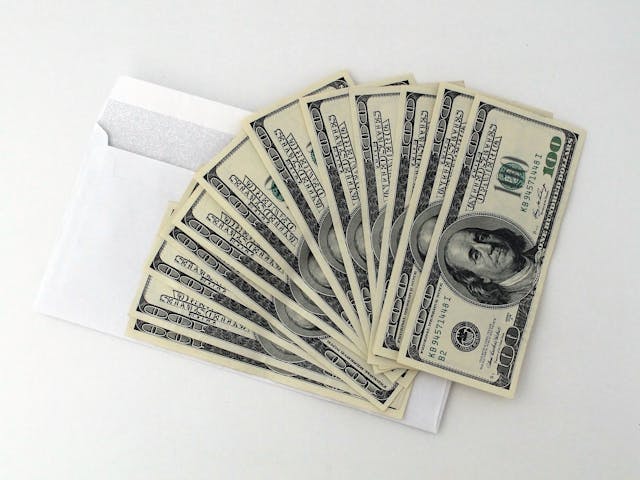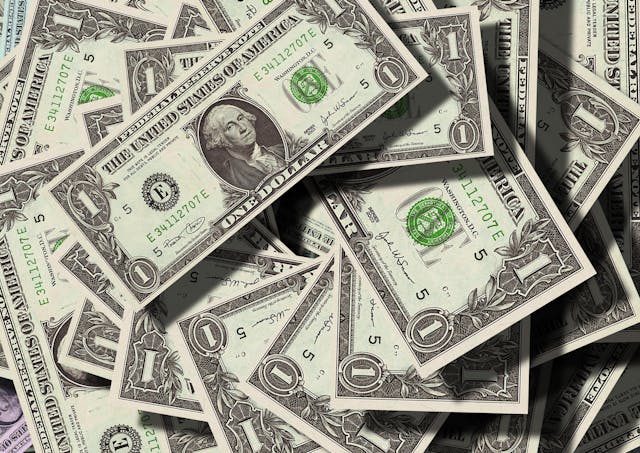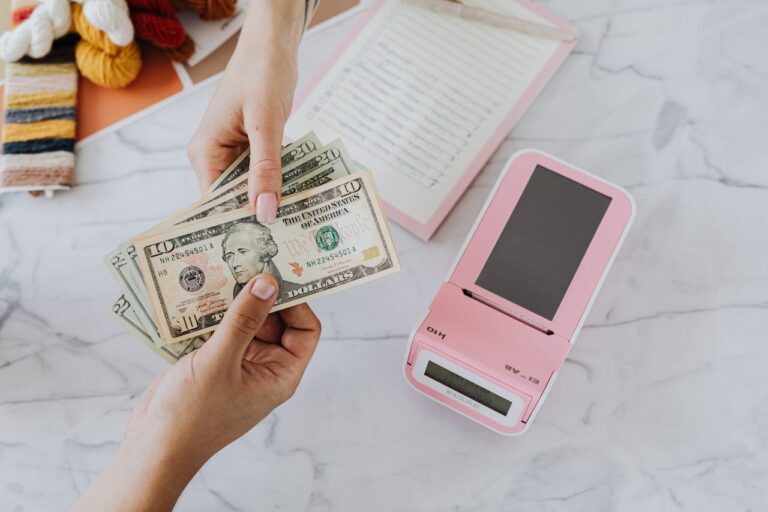Write Us: hello@ali5.org
Minimalist Money: How Owning Less Helped Me Save More
Less stuff, more savings. Discover how embracing minimalism transformed my finances, and how you can save more by simply owning less.

Here’s a truth: clutter doesn’t just crowd your home, it clutters your wallet and your mind. I used to be the person searching for the newest gadget or ‘on sale’ impulse buy, thinking it’d make life easier. Instead, it made everything messy, physically, financially, and mentally.
Then I discovered minimalism, not the Instagram aesthetic, but a lifestyle approach grounded in intentional living. Strip away the distractions. Own less. Spend less. Save more. And it changed everything.
Let me share how that shift unfolded for me, and how it might just change your life too, without requiring you to live in a blank white living room or give up food.
The Wake-Up Moment: Too Much Stuff, Too Little Balance
Not long ago, I was juggling:
-
Mountainous credit card debt from impulse shopping
-
A closet full of clothes I hadn’t worn in years
-
Boxes of kitchen gadgets that promised productivity but were never used
-
Weekend hangovers from feeling like I needed to chase trends
It wasn’t just the stuff; it was the stress that came along. Bills were piling up, the credit score was tanking, and I felt out of control. My energy was tied to things, and none of those things were making me happier.
After a particularly cringey moment of buying something I didn’t need to impress people I barely knew, I said enough.
Step 1: Defining Minimalism on My Terms
Minimalism isn’t about deprivation. It’s about intention. So I started by asking myself: what do I want to keep in my life, and what’s just dead weight?
I asked:
-
Which possessions add value, comfort, or joy?
-
Which ones I keep out of habit, not choice?
-
Where can I cut the extras without painful sacrifice?
Results:
-
I donated 60% of my clothes.
-
Sold or tossed unused tech, decor, and duplicate kitchen tools.
-
Threw away or recycled random impulse buys that did nothing.
That decluttering paid off. I made thousands by selling stuff I didn’t even miss. Plus, my home felt calmer, and my mind felt lighter.
Step 2: Spending Declined, Savings Climbed
Once I let go of unneeded items, I saw a shift in my mindset: if I didn’t need it at home, I also didn’t need it in my shopping cart.
Here’s what happened:
-
Subscription Purge: Cut unused streaming platforms or online memberships.
-
Impulse Control: No more “just browsing” online marketplaces.
-
Delayed Gratification: Add items to a wish list, wait 30 days, if I still wanted it, I evaluated again.
Saving in numbers:
-
Monthly spending dropped by 25%.
-
The emergency fund grew from zero to six months of expenses in just 13 months.
-
Credit card balance shrank dramatically, with no surprise interest charges.
Minimalism became more than a lifestyle; it became my financial strategy.
Step 3: Aligning Spending With Values, Not Marketing
Minimalism forced clarity: what do I value most?
For me:
-
Freedom to travel at a moment’s notice.
-
Taking weekdays off without panicking about work or bills.
-
Quiet time in the mornings before the world woke up.
-
Learning something new every month, books, code, music.
Now, when money shows up, I ask:
Does this purchase support my values, or distract from them?
So I:
-
Invest in online courses or tools that help me earn more later.
-
Keep streaming subscriptions I use.
-
Spend on experiences, not stuff that collects dust.
That shift helped me cut frivolous spending without feeling deprived.
Step 4: Automating Savings Instead of Keeping “For Later”
Here’s something you often hear from financial coaches: “Pay yourself first.”
In practice:
-
I automated transfers to savings and investment accounts the moment I got paid.
-
No excuses. No, “I’ll save what’s left over.”
-
I put 20% aside before checking my balance, even when it felt tight.
Eventually, those transfers were just routine. I didn’t miss the money once. It disappeared, and grew without me needing to think about it.
Step 5: Minimalism Freed Up More Than Money
Owning less did more than help me save; it freed up time and energy.
-
Cleaning and maintenance time dropped 40%.
-
I spent less time organizing things I didn’t need.
-
That gave me space to focus on side hustles, writing, and skills-building.
Minimalism is magnetic. It draws in the things you value and pushes out distractions, physical and mental alike.
Step 6: The Financial Payoff. Not Just Numbers, But Freedom
Today, I don’t just have savings, I have options.
-
I can leave a job without being desperate.
-
If I take a month or two off, nothing crumbles.
-
I have breathing room to pivot or explore a new hustle.
-
I feel in control rather than reactive.
That’s the power of saving smart, living minimal, and owning less. Not just financial freedom, but clarity, focus, and peace of mind.
How You Can Start Now, Without Extreme Measures
-
Pick one room or category to declutter this weekend. Don’t overwhelm yourself, just start.
-
Sell or donate what you haven’t used in 6 months. If you haven’t noticed you’re missing it, it’s clutter.
-
Track your spending for one week without judgment. Just write it down. Then highlight what drained your money vs. what delivered value.
-
Commit to automating at least one savings transfer. Even $50 matters.
-
Ask before buying: “Does this support my values, or distract me?”
-
Focus on experiences and learning instead of things. Free joy often comes from presence, not purchases.
Final Thought: Less Stuff, More Life
Minimalism isn’t about living in an empty apartment with just one shirt. It’s about ripping the labels off what keeps you stuck, and putting your cash, time, and energy into things that matter.
Things you can miss are things you don’t need.
In the end, owning less didn’t just help me save; it helped me live on purpose. It gave me financial momentum and, more importantly, mental clarity.
So if you feel stuck with too much stuff and not enough progress, maybe it’s time to let go. Let your money work, unclutter your space, and watch life open up.







